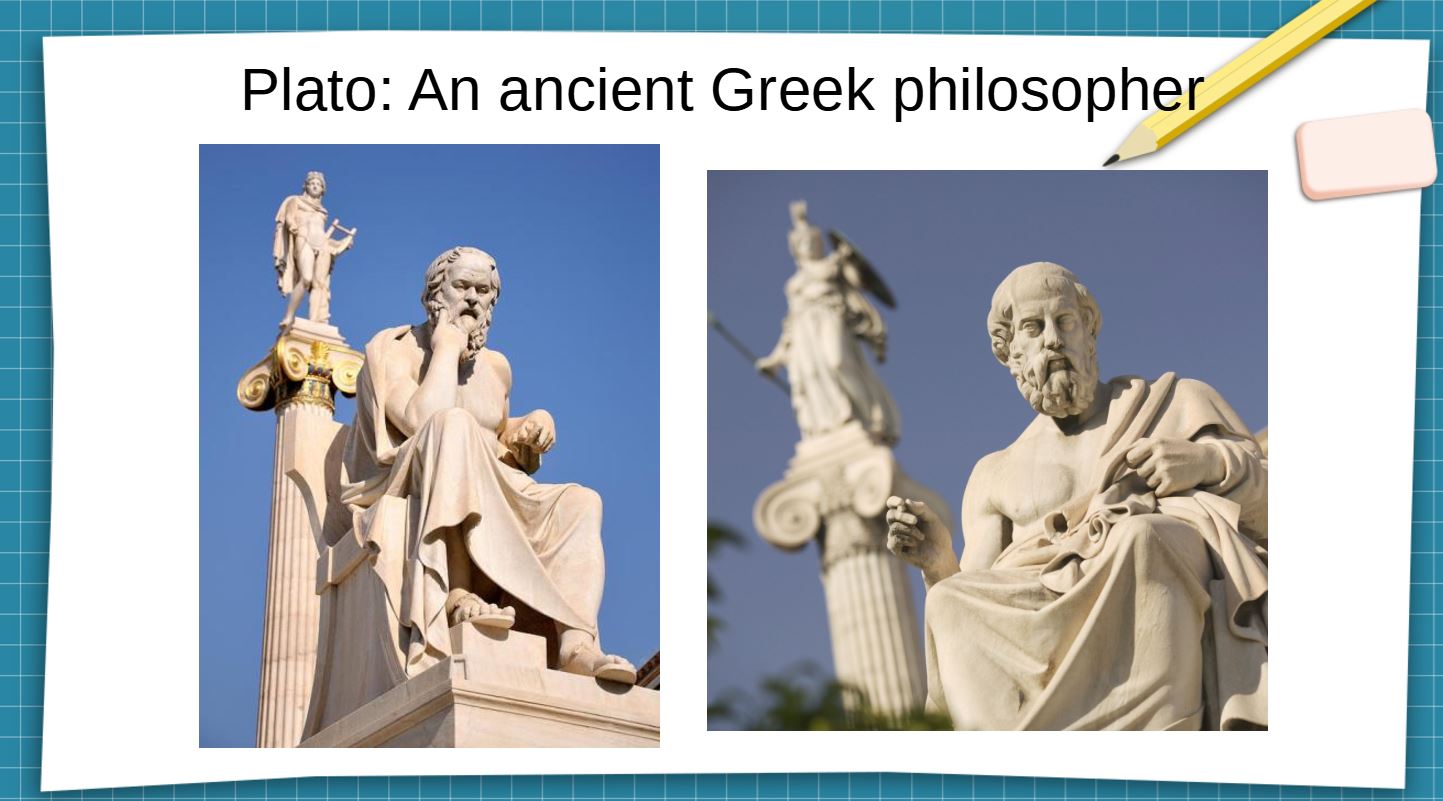Updated By: LatestGKGS Desk
Plato: About, Details, History, Background, Influence on Greek Culture

Palto An ancient greek Philosopher Early life, Achievement, History
Plato, an ancient Greek philosopher, was born in Athens, Greece, in 428/427 BCE and died in 348/347 BCE. He was a pupil of Socrates (c. 470–399 BCE), a teacher of Aristotle (384–322 BCE), and the creator of the Academy.
Plato built on Socrates' demonstration that those regarded as experts in ethical matters lacked the understanding required for a good human life by proposing that their errors were caused by their failure to engage properly with a class of entities he called forms, the most prominent of which were Justice, Beauty, and Equality. Whereas earlier thinkers—including Plato himself in some passages—used the phrase without any exact technical force, Plato began to pay focused attention to these entities throughout the course of his career. They were the most important constituents of reality, underlying the existence of the sensible world and giving it its intelligibility, as he envisioned them.
They were the most important aspects of reality, underpinning the existence of the perceptible world and providing it what intelligibility it has, as he envisioned them, and they were only accessible to the intellect, not the senses.
Early life
Plato was an ancient Greek philosopher who is credited with laying the philosophical foundations of Western civilisation alongside Socrates and Aristotle.
Due to the scarcity of records, little is known about Plato's early life and education. Plato was born into one of Athens' wealthiest and politically involved families. According to ancient traditions, he was a clever but quiet young man who excelled in his studies. Plato must have received instruction in grammar, music, gymnastics, and philosophy from some of his era's most illustrious instructors.
Famous works and contribution
The Republic, Plato's most renowned work, depicts an enlightened community led by a philosopher. He's also noted for his dialogues (early, middle, and late), which demonstrate his philosophical theory of forms, which he's also known for.
Plato carved out a niche for philosophy by posing and debating a wide range of metaphysical and ethical issues. He constructed a metaphysics of Forms to explain the similarities and resemblances among objects in the physical universe.
Conclusion
Plato's theory of forms is often regarded as the first well-known metaphysical discussion in Western philosophy. It investigates reality's ultimate structure and poses the question of what reality is, rather than what it appears to be. Plato came to the conclusion that everything in our world is a replica of a perfect form that exists in a realm that we can only access via contemplation. Plato's premise, on the other hand, was primarily ethical rather than metaphysical.